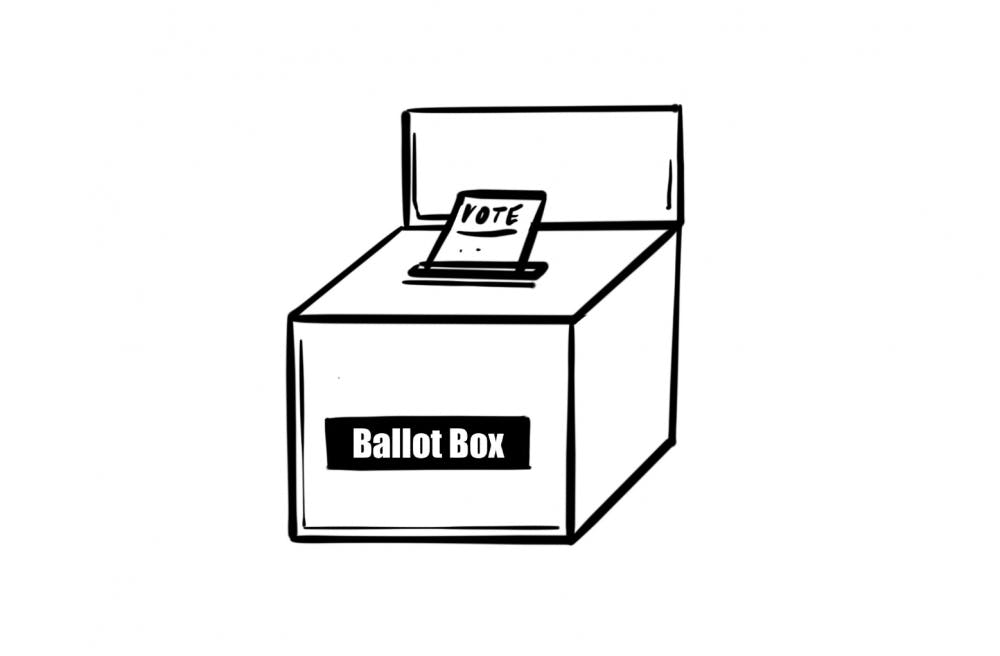Voters in 14 states — from California to Maine — cast their ballots for their choice Democratic candidate March 3, when more than one third of all delegates for the Democratic National Convention were up for grabs on Super Tuesday.
Sen. Bernie Sanders (I-VT) clinched California, Colorado, Vermont and Utah while former Vice President Joe Biden emerged victorious in the other 10 participating states. Although Mike Bloomberg, media mogul and former Mayor of New York, won American Samoa, he announced he was ending his presidential bid Wednesday.
[infogram id=" super-tuesday-results-1hkv2nelyl8n2x3?live "]
In Rhode Island, students on College Hill expressed mixed reactions to the results.
“I think that it is concerning how now it really is a man-on-man race between Biden and Bernie,” Zachary Federman ’23 said. Though a supporter of Sanders, Federman added that he fears that with such a sudden narrowing of the race, voters will vote tactically, rather than for the candidate they really support. “The whole point of the primary is you vote for who you want.”
The Democratic field has indeed narrowed substantially over recent days. Tom Steyer, a former hedge fund manager, dropped out of the race after a third-place finish in the South Carolina primary Saturday. Former mayor of South Bend, Indiana, Pete Buttigieg, and Sen. Amy Klobuchar (D-MN) announced decisions to suspend their presidential campaigns Monday after poor performances in the South Carolina primary. Both have since endorsed Biden.
“I’m surprised that Biden did so well and disappointed that the moderates coalesced around (him),” Duncan McManus ’20 said. This sentiment was echoed by Massachusetts native Mark Buckley ’23, a member of Brown Students for Bernie, who said he was sure the battle for his home state would be between Sen. Elizabeth Warren (D-MA) and Sanders. But as soon as Klobuchar and Buttigieg endorsed Biden, he feared the moderate vote would capture the majority.
After concerns of absentee ballot delays, Buckly traveled for more than two hours by train Monday night so he could cast his vote for Sanders early Tuesday morning in his hometown, before returning to campus later that day. Though disappointed to see his home state go to Biden, Buckley added that “a lot remains at play.”
Jack Ostrovsky ’23, also a member of Brown Students for Bernie, took advantage of Minnesota’s early voting laws and submitted his ballot over winter break. Sanders emerged triumphant over Hillary Clinton in Minnesota’s 2016 primary, making Sanders’ loss to Biden during this cycle a particularly large blow, said Ostrovsky.
While some students were disappointed by Biden’s surge, others articulated excitement. Despite Buttigieg’s exit from the presidential race, University student group Bruno For Pete still held a Super Tuesday watch party which, according to the clubs’s co-chair Joshua Neronha ’22, evolved into “a Joe Biden party more than anything.”
Speaking on behalf of the group’s board, Neronha added: “I think most of us see Joe Biden as our clear second choice and our choice for the nominee.”
“I think that everyone got a little ahead of their skis on maybe declaring the death of the Biden candidacy,” said Jack Kates ’20. Kates, a Massachusetts native, voted for Warren Tuesday, but said it “looks like (her nomination) is not going to happen now, so now I’m rethinking.”
Ocean State voters will head to the polls on April 28. In the meantime, students expressed commitment to mobilizing support for their preferred candidate in the months to come.
“As important as Super Tuesday is, I’m not giving up hope,” Ostrovsky said. “There are still states left. Now is not the time to give up.”
—Ben Pollard contributed reporting.





